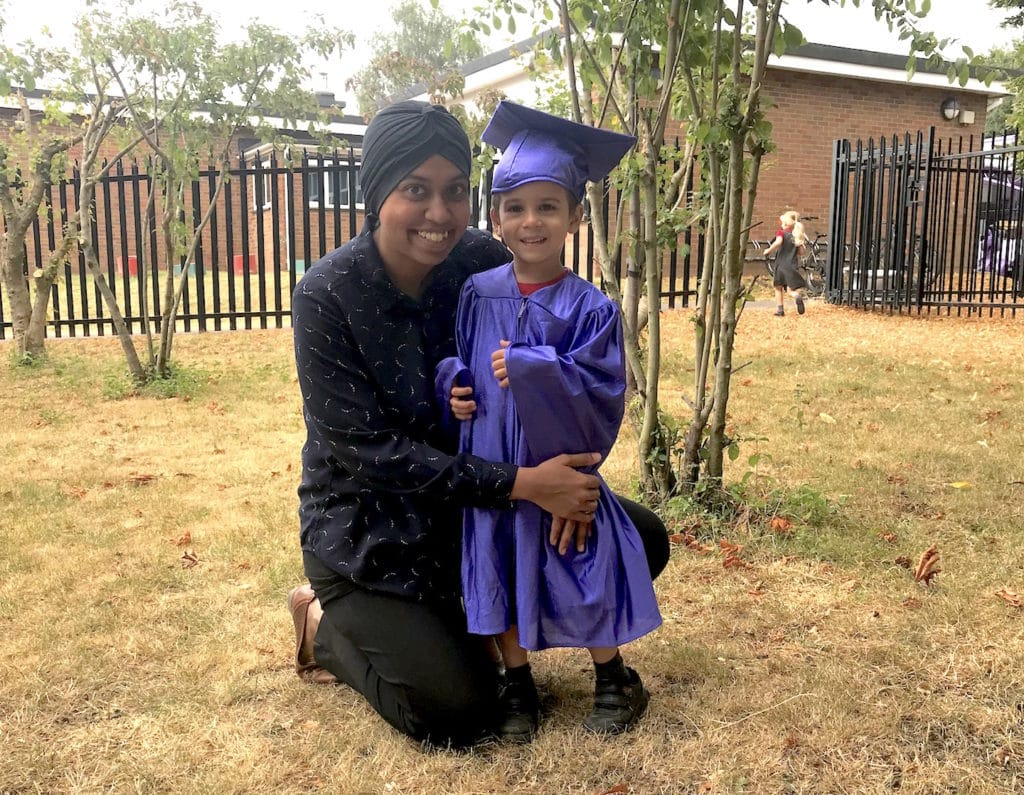
After this Singaporean mama gave birth to two sons in the UK, she sent them both back to Singapore to be raised by extended family until the age of 3. Here’s why long-distance parenting worked for their family.
Ever since we last spoke to Singaporean mama Shereen Aziz-Williams about her life in Wales we’ve been curious about her and her husband’s unconventional approach to raising children.
She had given birth to her first child Iesu in 2009 and brought him to Singapore when he was four months old, leaving him in the care of her parents until he was three years old. She did the same with her second child, Selyf, born in 2014.
Shereen tells us more about her motivations in long-distance parenting, how she counters the cynics, and why she thinks it’s worth it.
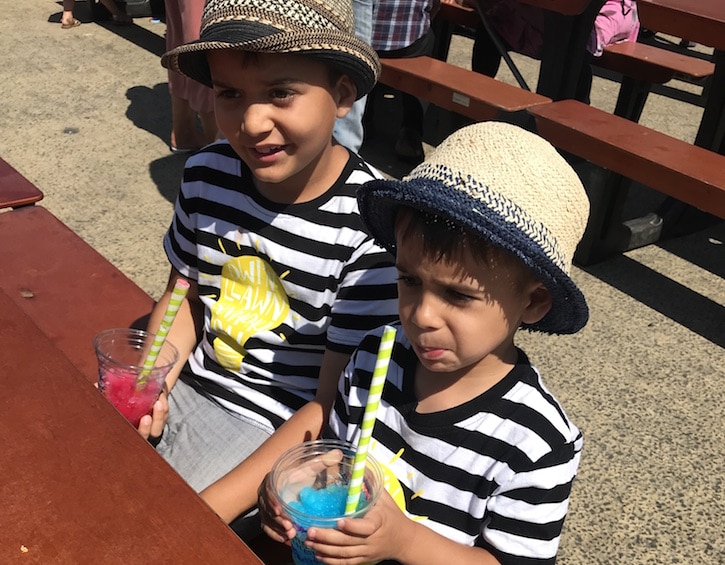
The decision wasn’t as difficult as people might think. Shereen’s parents had offered to help take care of her children should she try for a family one day.
This was because her parents had brought her up the same way. When her parents moved to Brunei to work years ago, Shereen remained in Singapore with her grandmother and extended family before eventually joining her parents in Brunei.
When she became pregnant with Iesu, a number of her friends had young children too and she became acutely aware how much family support they had. Her husband comes from a small family. Moreover, her in-laws in Wales are older than her parents and did not live close by.
Naturally she took her parents up on the offer without hesitation.
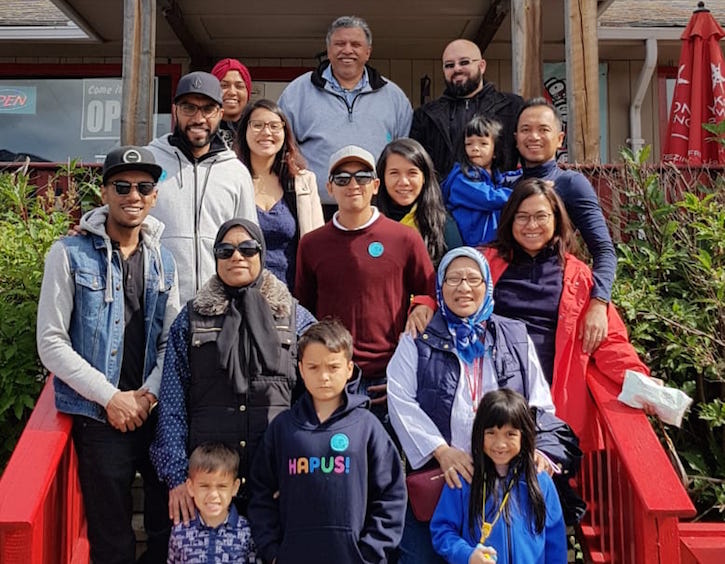
“I was keen for my children to have the experience of coming from a big, loud and crazy extended family where everyone is an aunt, an uncle or a cousin regardless of how many times removed they were,” Shereen explains.
Thanks to her own childhood experience, she knows that an arrangement like this could work in spite of what people think – and even more so today with the aid of technology that makes video calls and instant messaging possible.
“My children would be bicultural and I am aware I would need opportunities to explore both sides of their heritage,” she adds.
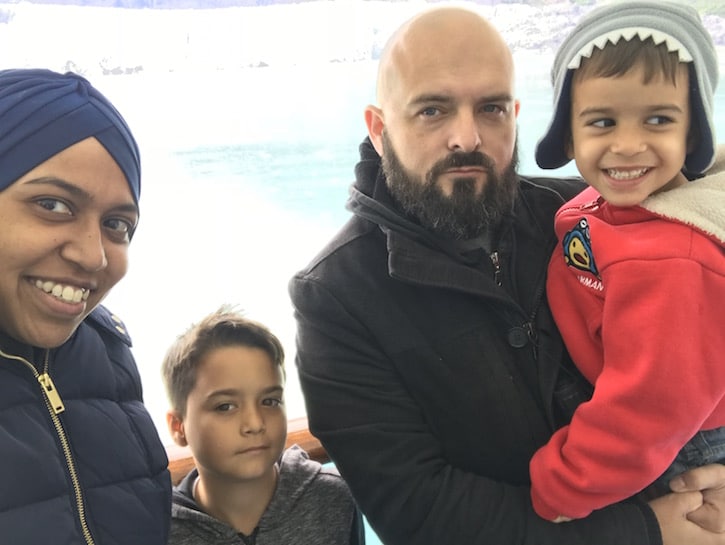
Her husband is supportive of the idea as their regular trips to Singapore helped him see what life could be like for their children.
His family, however, found it quite hard to comprehend this arrangement initially. Shereen candidly revealed that her mother-in-law warmed up to the idea once she saw how Iesu interacted with them when he moved back to Wales after three years in Singapore.
Shereen admitted that it was very tough at the beginning to be so far away from her sons, but seeing how much joy they brought to her family made it a lot easier.
“Everyone has an opinion when it comes to parenting and if they were brought up in a culture or environment where this isn’t common, they would tend to be quite curious why we made this decision. Also, this experience isn’t unique to my family. There are plenty of migrant workers around the world who have these arrangements in place. In some communities, these arrangements are the norm.”
Read more: A Helper Explains What It Feels Like to Leave Your Children and Work Abroad
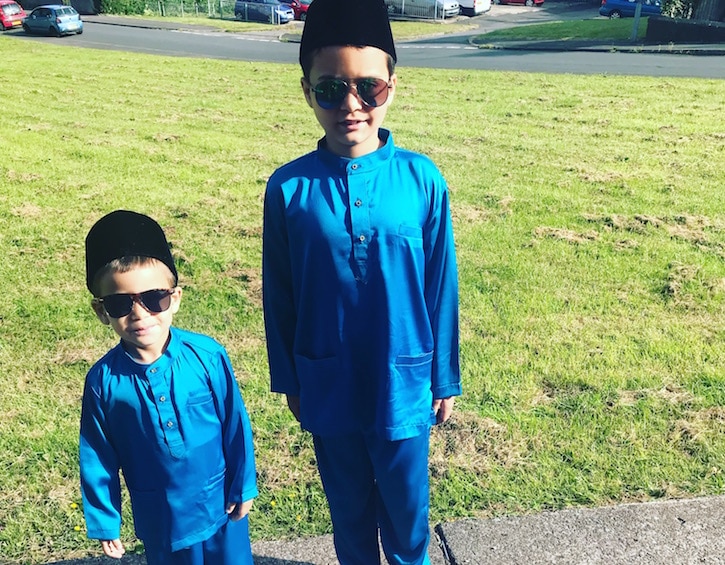
She would go to Singapore twice a year and her family would bring the boys to Wales once a year. Video calls, photos and WhatsApp helped in the meantime.
“I definitely had to explain it quite a bit. Some people got it and some people didn’t. There were people who would say quite hurtful things but thankfully I’ve got thick skin so I just ignore them. My children were cared for by people who love them to bits and kept them safe. I don’t think I could ask for more,” she says.
Most people who are skeptical about such an arrangement would also voice concerns about how the children would adjust when they finally came home to their parents.
Both Shereen and her husband had anticipated a very difficult adjustment for the boys but they ended up surprising their parents.
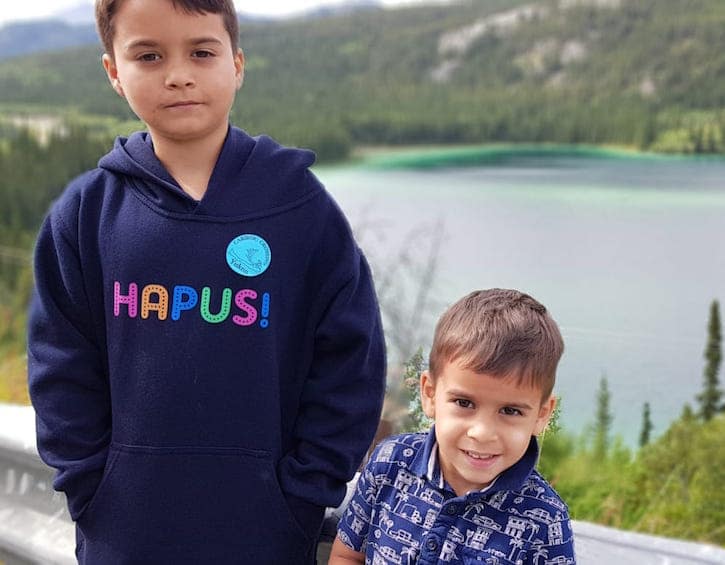
Iesu and Selyf both missed their Singaporean family but moving back to Wales, they were also excited about their new room, new friends and a totally new environment.
Shereen tells us it was probably easier for Selyf to settle back in Wales because Iesu was around so there was another child to play with.
When asked what Iesu and Selyf miss about life in Singapore, it was unanimous: Family and neighbours. Food-wise, the boys have different opinions however. It’s halal McDonald’s for Iesu, and Milo packet drinks for Selyf.
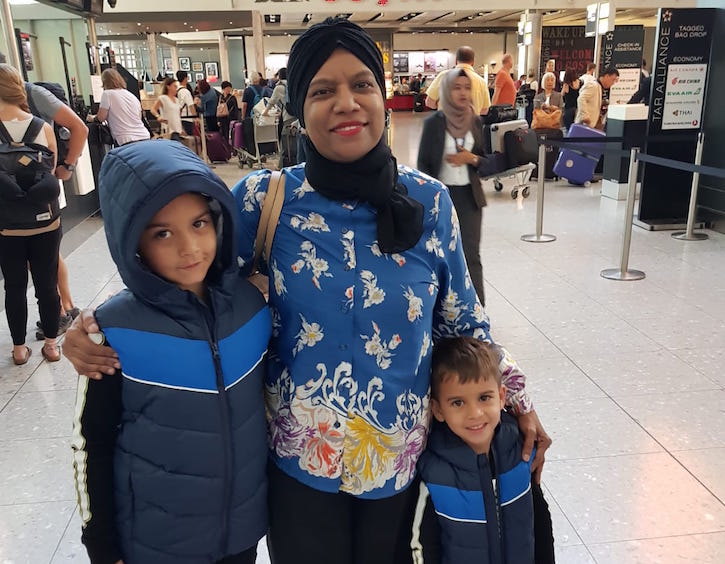
She hopes the family-oriented culture and atmosphere the boys were exposed to in Singapore will inspire them to keep those values when they have their own families one day.
These days, every time Iesu and Selyf are back in Singapore for their summer holidays, it’s like going home for them.
“I think if you don’t have family support overseas, this could be an approach to consider. It’s not easy but it can be incredibly rewarding for the child, your extended family and also yourself,” Shereen says.
Her advice to parents who might consider following in her footsteps: “Don’t think about what others might say or think about you. Do what is right for you and your family, because ultimately that is the only thing that matters. And invest in a good-quality smartphone!”
Read more: Jo Furniss: How I Won the Mummy Wars


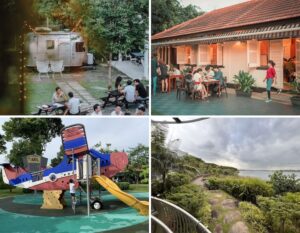



 View All
View All



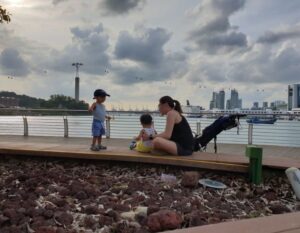
 View All
View All
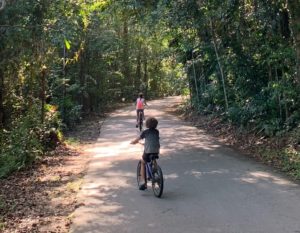









 View All
View All





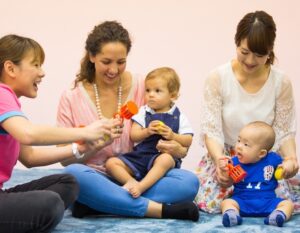

![[𝗡𝗘𝗪] 𝗣𝗮𝘀𝗶𝗿 𝗥𝗶𝘀’ 𝗕𝗿𝗼𝗻𝘁𝗼𝘀𝗮𝘂𝗿 𝗣𝗮𝗿𝗸 𝗶𝘀 𝗕𝗔𝗖𝗞. 𝗦𝗮𝗳𝗲𝗿 & 𝗙𝗨𝗟𝗟 𝗼𝗳 𝗗𝗶𝗻𝗼-𝗦𝗶𝘇𝗲𝗱 𝗙𝘂𝗻! 🦕🦖
A dinosaur you can climb into, a tail slide you can zoom down, and plenty of spots for kids to swing, bounce, and explore? Yeap, it’s a full-on dino adventure. After being closed for a major revamp, Brontosaur Park is now officially open (and safe!) for little adventurers to run wild.
Comment “DINO” or hit the link in bio for more epic outdoor playgrounds in Singapore!
𝗪𝗵𝗮𝘁 𝘄𝗲 𝗹𝗼𝘃𝗲:
- A Brontosaurus structure kids can explore from the legs to the belly
- A roller slide that goes right down the dino’s tail
- Rope bridges, climbing nets & hammocks between stego spikes = plenty of ways to burn off energy
- Toddler-friendly mini dino zone for the little ones
- Spot dino sculptures painted by residents (hidden all around the park)
𝗧𝗶𝗽𝘀 𝗳𝗼𝗿 𝗺𝗮𝘅 𝗳𝘂𝗻:
- Wear grippy shoes. Lots of climbing involved
- Pack snacks and water (There are minimarts nearby)
𝗪𝗵𝗲𝗿𝗲? The playground is located between Blk 777 & 778, along Pasir Ris St 71
𝗖𝗼𝘀𝘁? FREE!
.
.
.
.
.
#DinoPlaygroundSG #PasirRisPlayground #SgPlaygrounds #OutdoorFunSG #FreePlaygroundsSG #BrontosaurPark #SgFamilyAdventures #ThingsToDoWithKidsSG #SingaporeWithKids #PlaygroundGoalsSG #ToddlerPlaySG](https://www.sassymamasg.com/wp-content/plugins/instagram-feed/img/placeholder.png)
